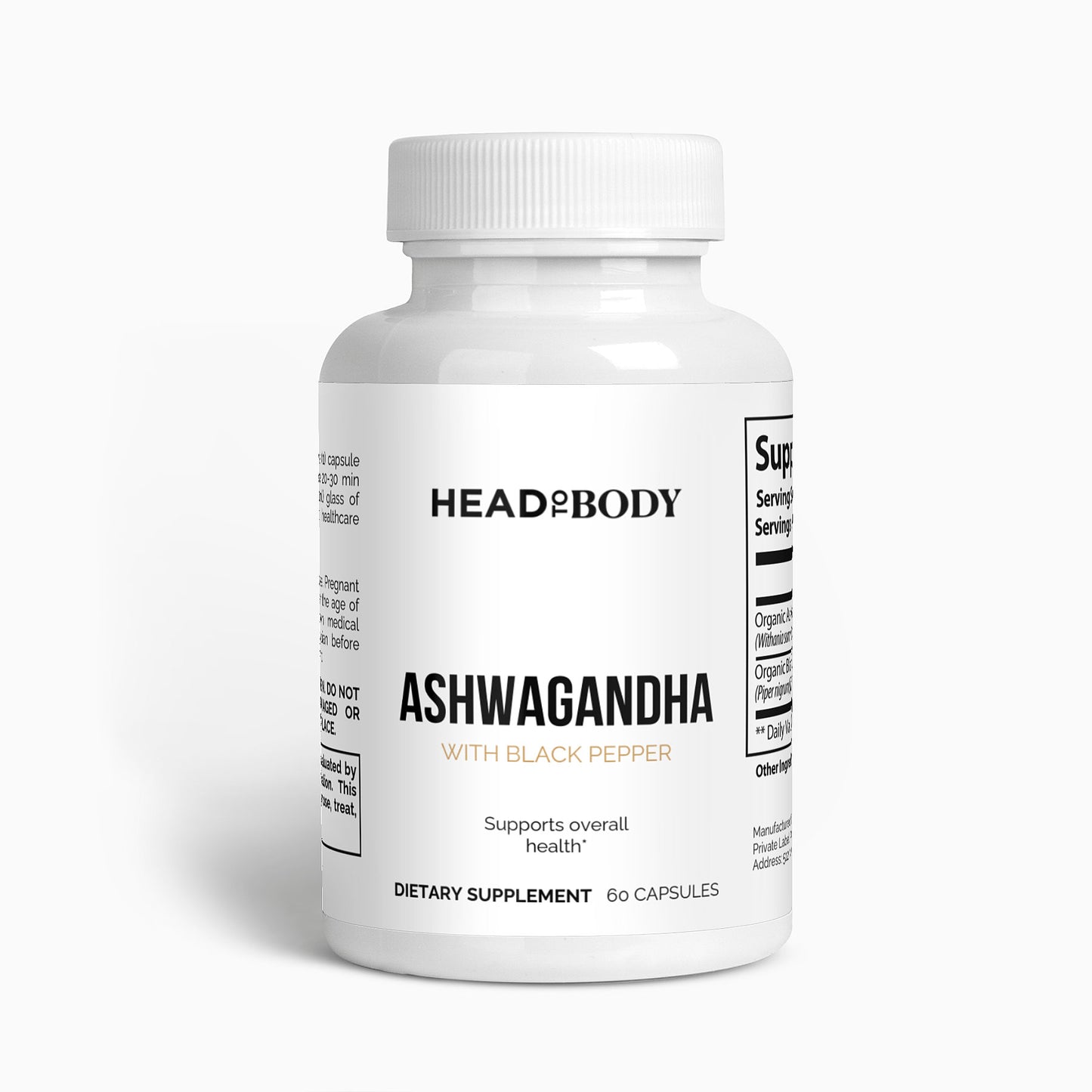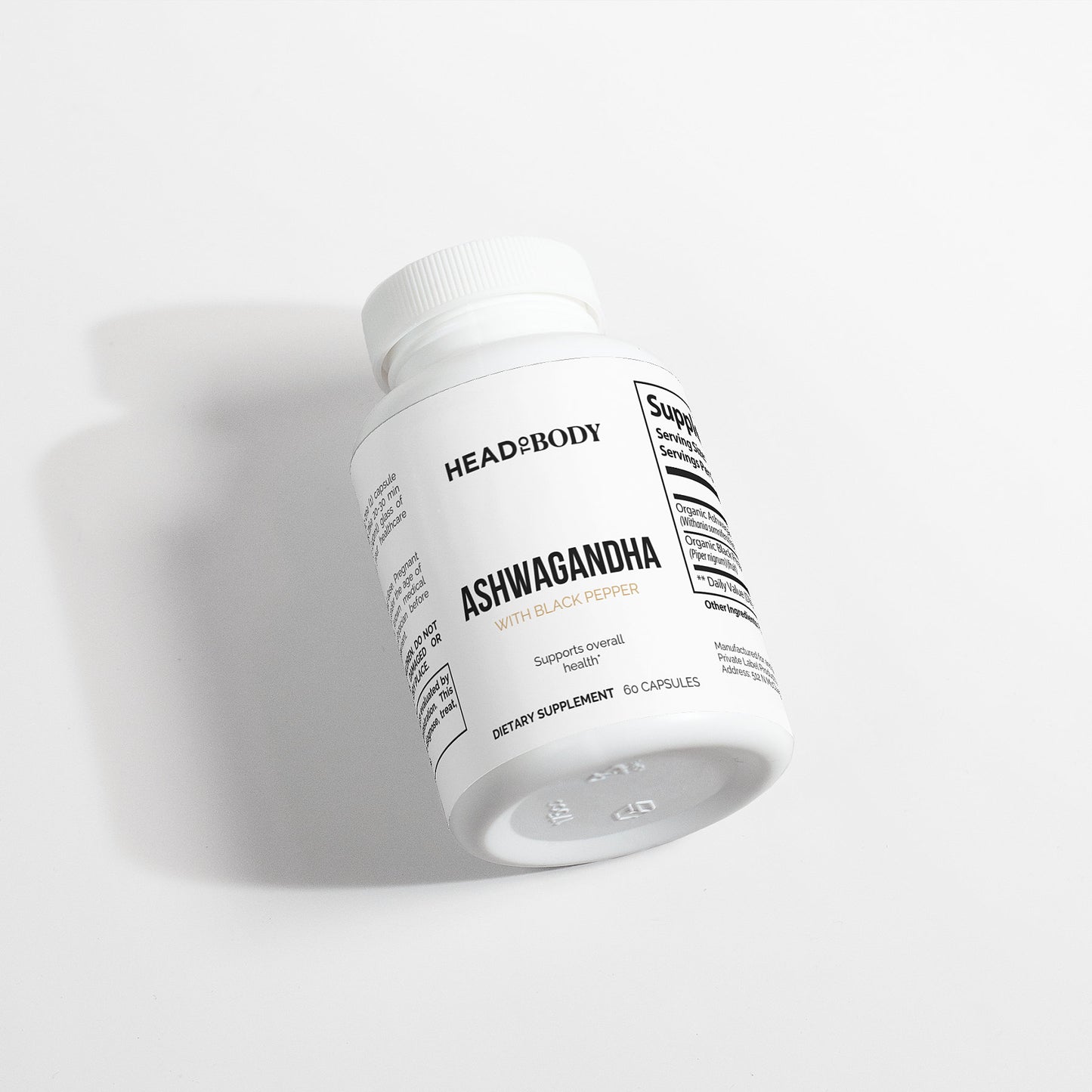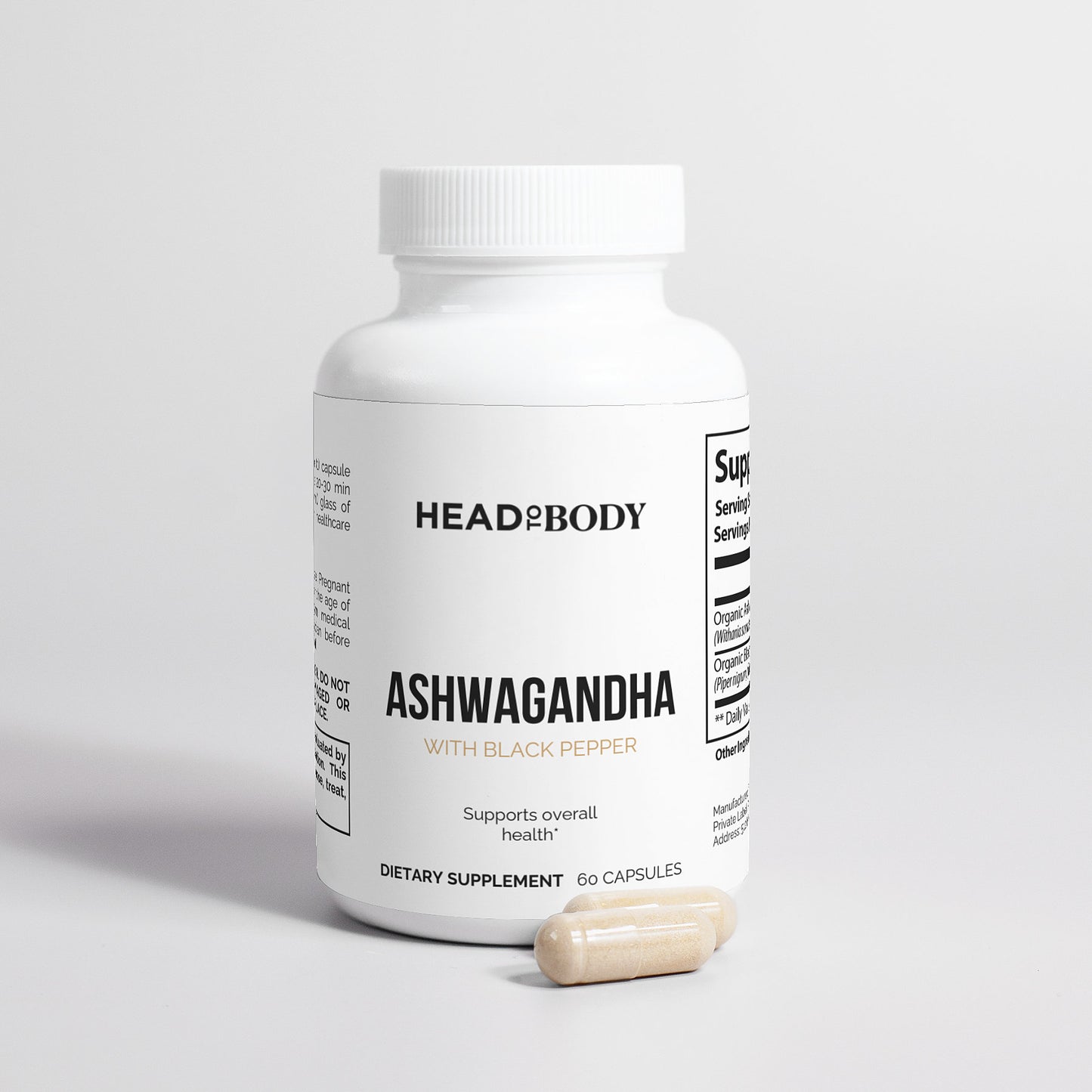Sleep is a vital part of our health, yet many struggle to achieve quality rest.
Enter Ashwagandha, a herb with a long history in Ayurvedic medicine.
This adaptogenic plant is known for its potential to reduce stress and anxiety. But can it also improve your sleep?
In this article, we delve into the science behind Ashwagandha and its effects on sleepiness. We'll explore common questions like "Will Ashwagandha help with anxiety?" and "Will Ashwagandha make you sleepy?"
We'll also discuss the recommended dosage, potential side effects, and how to choose the right supplement.
If you want to learn about natural sleep aids or manage sleep disorders, this guide is for you. It will explore how Ashwagandha can help with sleep health.
What is Ashwagandha?
Ashwagandha, scientifically known as Withania somnifera, is a small shrub native to India and North Africa. It's recognized for its medicinal properties, particularly within the realm of Ayurvedic medicine.
The plant's roots and berries are often used to create supplements.
These supplements are believed to offer a range of health benefits, from reducing stress and anxiety to improving cognitive function. But it's the potential impact on sleep that we're focusing on in this article.
Ashwagandha and Its Historical Use in Ayurveda
Ashwagandha has a rich history in Ayurveda, the traditional Indian system of medicine. It's been used for over 3,000 years to relieve stress, increase energy levels, and improve concentration.
In Sanskrit, Ashwagandha means "smell of the horse," which refers to both its unique smell and the belief that consuming it would give the individual the strength and vitality of a horse. Its use in promoting sleep is a relatively recent discovery, but it's one that has gained significant attention.
The Science Behind Ashwagandha and Sleep
Ashwagandha is classified as an adaptogen, meaning it can help your body manage stress. It does this by regulating the production of stress hormones in your body. When these hormones are in balance, it can lead to better sleep patterns.
The herb contains a compound called triethylene glycol. This compound has been found to promote sleep induction. It's this property that has led to the increased interest in Ashwagandha as a potential sleep aid.
However, it's important to note that:
- The effects of Ashwagandha on sleep are not immediate and may require consistent use over time.
- The herb may not directly induce sleepiness, but it can lead to a more restful state.
- More research is needed to fully understand the effects of Ashwagandha on sleep.
Will Ashwagandha Help With Anxiety?
Ashwagandha is known for its potential to reduce stress and anxiety. This is largely due to its ability to lower cortisol levels, the body's primary stress hormone. By reducing the levels of this hormone, Ashwagandha can help alleviate feelings of anxiety.
However, it's important to remember that everyone's experience with Ashwagandha can vary. While some may find it beneficial in managing anxiety, others may not notice a significant difference. As always, it's recommended to consult with a healthcare provider before starting any new supplement regimen.
Ashwagandha Benefits for Sleep
Ashwagandha's potential benefits for sleep are linked to its adaptogenic properties. This means it can help the body adapt to stress, which in turn can lead to improved sleep patterns. By regulating stress hormones, Ashwagandha can promote a more restful state conducive to good sleep.
Research suggests that Ashwagandha may improve sleep quality and help manage insomnia. One of the active components of Ashwagandha, triethylene glycol, is known to promote sleep induction. However, it's important to note that the herb's effects on sleep are not immediate and may require consistent use over time.
Here are some potential benefits of Ashwagandha for sleep:
- May improve sleep quality
- Can help manage insomnia
- Regulates stress hormones for better sleep patterns
- Promotes a more restful state
- Contains triethylene glycol, which aids sleep induction
Does Ashwagandha Directly Induce Sleepiness?
Ashwagandha's role in promoting sleep is more indirect than direct. It doesn't work like a typical sedative that induces sleepiness immediately upon consumption. Instead, Ashwagandha helps create a more relaxed and balanced state in the body, which can lead to better sleep over time.
This adaptogenic herb works by regulating stress hormones and promoting relaxation. This can result in improved sleep patterns and a more restful state. So, while Ashwagandha may not make you feel sleepy right away, it can contribute to better sleep quality in the long run.
Recommended Dosage and Timing for Sleep Benefits
The recommended dosage of Ashwagandha can vary depending on the form of the supplement and individual factors. However, a common dosage for sleep benefits is around 300-500 mg per day. It's always best to start with a lower dose and gradually increase it if needed, under the guidance of a healthcare provider.
The timing of Ashwagandha intake can also influence its effects on sleep. Many people find it beneficial to take Ashwagandha in the evening, as it can help promote relaxation and prepare the body for sleep.
- Start with a lower dose of around 300-500 mg per day
- Gradually increase the dose if needed, under the guidance of a healthcare provider
Consider taking Ashwagandha in the evening to promote relaxation and prepare for sleep
Potential Side Effects and When to Avoid Ashwagandha
While Ashwagandha is generally considered safe for most people, it's important to be aware of potential side effects. These can include upset stomach, diarrhea, and in rare cases, liver damage. It's also worth noting that Ashwagandha may interact with certain medications, particularly sedatives.
Certain individuals should avoid Ashwagandha. This includes pregnant women, as Ashwagandha may induce miscarriage. People with thyroid disorders should also exercise caution, as Ashwagandha can alter thyroid hormone levels.
- Potential side effects: upset stomach, diarrhea, rare cases of liver damage
- May interact with certain medications, particularly sedatives
- Should be avoided by pregnant women and people with thyroid disorders
Choosing the Right Ashwagandha Supplement
When choosing an Ashwagandha supplement, it's crucial to select a reputable brand. The quality of supplements can vary greatly, and some may contain fillers or additives. Look for products that are certified organic, non-GMO, and free from unnecessary additives to ensure you're getting the best quality.
Conclusion: Balancing Expectations with Reality
Ashwagandha's potential to improve sleep and reduce anxiety is backed by both traditional use and modern research. However, it's important to balance expectations with reality. While many people find Ashwagandha helpful, it's not a magic cure-all and may not work for everyone
Incorporating Ashwagandha into a holistic approach to sleep health can be beneficial. This includes maintaining good sleep hygiene, managing stress, and considering other natural and medical sleep aids. Always consult with a healthcare provider before starting any new supplement regimen.
Facts and data
For neurodegenerative diseases Studies show ashwagandha can slow, stop, and possibly reverse certain types of nerve cell damage. https://www.webmd.com/vitamins-and-supplements/ashwagandha
But emotionlessness could be a sign that someone is taking an impure supplement or that it is interacting with other , according to Pratibha Shah, BAMS, MD (Ayurveda), MPH, CEO of My Ayurved, a holistic health clinic in Massachusetts.
Also, the herb may not suit those who take benzodiazepines or anticonvulsants, according to a 2012 study.
https://www.medicalnewstoday.com/articles/ashwagandha-for-insomnia
Studies show that it can help treat insomnia and increase alertness upon waking up.
https://www.medicalnewstoday.com/articles/ashwagandha-for-insomnia
https://www.verywellhealth.com/i-tried-ashwagandha-7109255
Research indicates that ashwagandha comes with several benefits: Lowering stress and anxiety: For example, in one study , participants who took 250 milligrams (mg) or 600 mg of ashwagandha daily experienced lower stress and anxiety levels.
https://www.medicalnewstoday.com/articles/ashwagandha-for-insomnia








